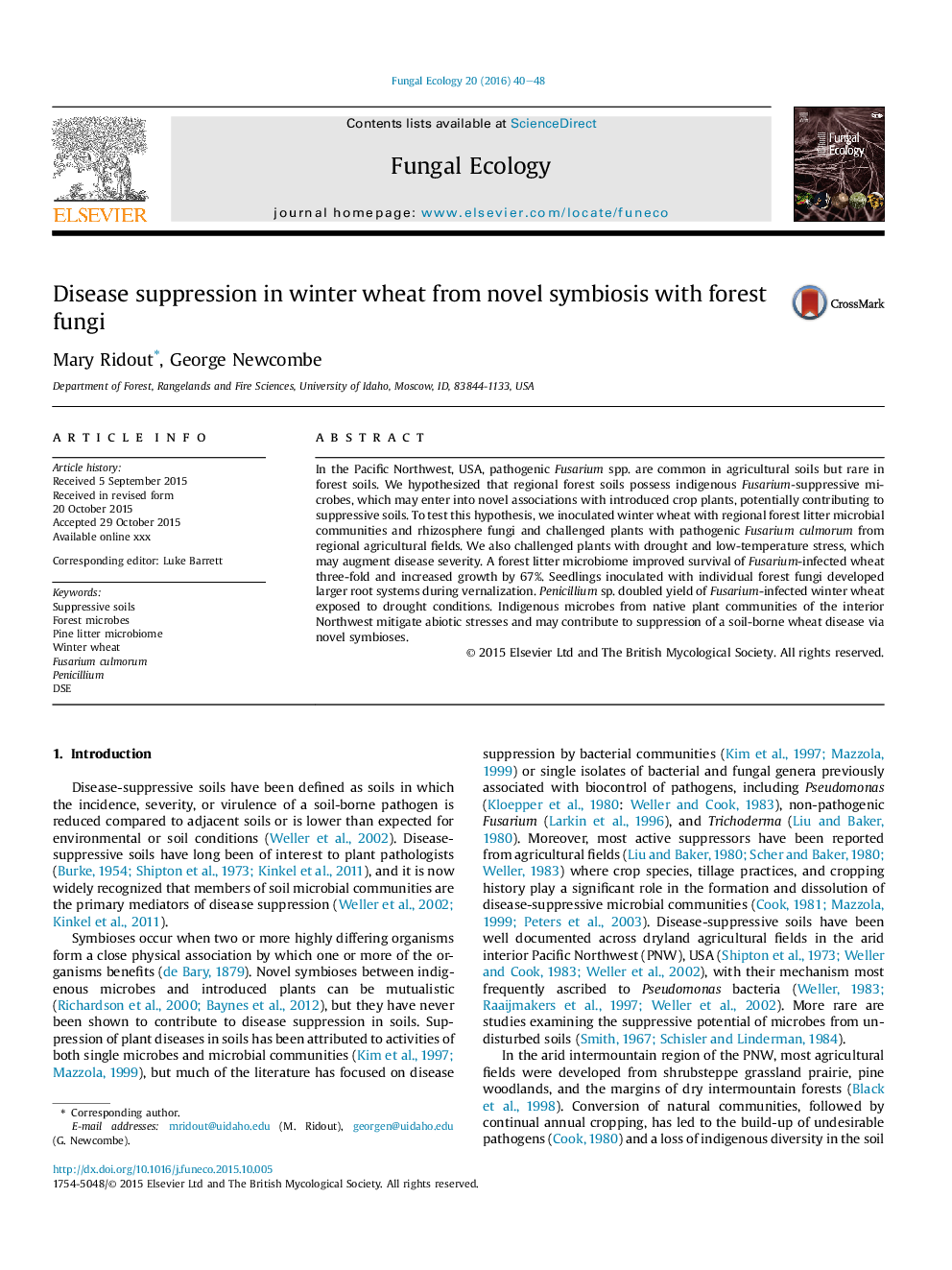| Article ID | Journal | Published Year | Pages | File Type |
|---|---|---|---|---|
| 8384443 | Fungal Ecology | 2016 | 9 Pages |
Abstract
In the Pacific Northwest, USA, pathogenic Fusarium spp. are common in agricultural soils but rare in forest soils. We hypothesized that regional forest soils possess indigenous Fusarium-suppressive microbes, which may enter into novel associations with introduced crop plants, potentially contributing to suppressive soils. To test this hypothesis, we inoculated winter wheat with regional forest litter microbial communities and rhizosphere fungi and challenged plants with pathogenic Fusarium culmorum from regional agricultural fields. We also challenged plants with drought and low-temperature stress, which may augment disease severity. A forest litter microbiome improved survival of Fusarium-infected wheat three-fold and increased growth by 67%. Seedlings inoculated with individual forest fungi developed larger root systems during vernalization. Penicillium sp. doubled yield of Fusarium-infected winter wheat exposed to drought conditions. Indigenous microbes from native plant communities of the interior Northwest mitigate abiotic stresses and may contribute to suppression of a soil-borne wheat disease via novel symbioses.
Related Topics
Life Sciences
Agricultural and Biological Sciences
Ecology, Evolution, Behavior and Systematics
Authors
Mary Ridout, George Newcombe,
